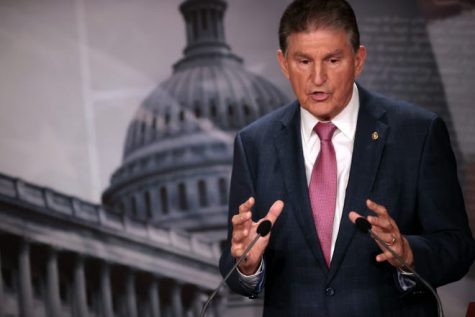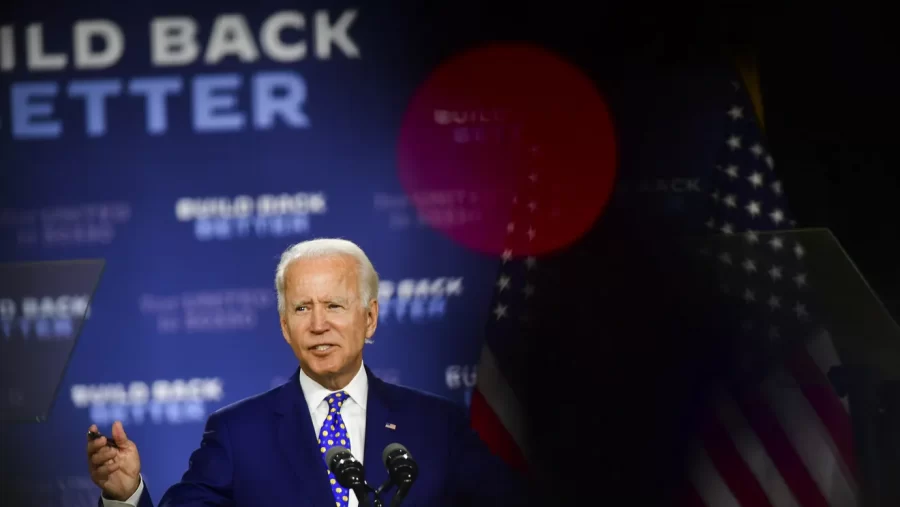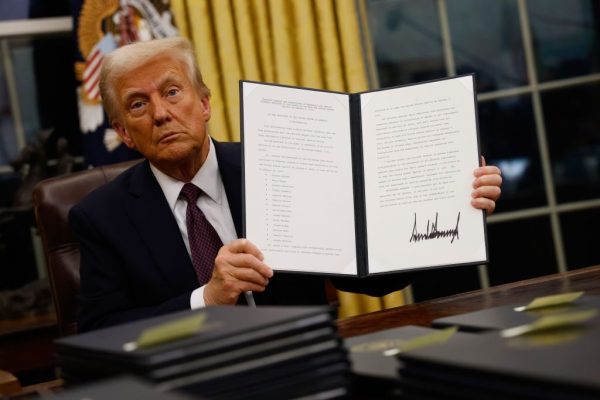Democrats struggle to hold two planned votes to advance Biden’s economic agenda
President Joe Biden tries to rally support for his legislative agenda. The House hoped to vote on both a social safety net bill and an infrastructure bill on Friday November 5th, 2021.
Recently the infrastructure bill ($1.2 trillion dollars to fund hard infrastructure such as clean energy, road repair, bridge repair, etc.) came to the floor of the House of Representatives and is awaiting a vote (as of November 4th). This bill has backing on a bipartisan basis including support from hard-line conservative Republican Mitch McConnell (R-KY) who helped push the bill through the Senate. After passing the Senate with a vote of 69-30, the infrastructure bill still awaited a vote on the House of Representatives floor.
The reconciliation bill is another bill that the Biden Administration had promised when Biden ran for President in 2020. Just as expensive as the infrastructure bill, it includes soft infrastructure such as housing and child care subsidies, the expansion of Medicare and Medicaid, cheaper housing incentives, and more. The current estimate of the reconciliation bill cost is $1.75 trillion, down from the $3.5 trillion original estimate. The reconciliation bill is awaiting a vote in both the House and Senate and has no bipartisan support, mainly because of the scope of the bill and its cost. President Biden relied on both of these bills to get him elected but also promised to work with Republicans in his efforts to pass such bills. Now that the reconciliation bill is threatened by moderate Democrats Kyrsten Sinema (D-AZ) and Joe Manchin (D-WV), Joe Biden must choose to lower the costs of his legislative agenda or submit to the Congressional progressive caucus and watch as one or both of his bills fail.
Joe Manchin’s objection to the reconciliation bill is because of the constituency that he serves. Manchin is from West Virginia, a state which had nearly two times as many Trump votes than it did Biden votes in the 2020 election. Manchin won West Virginia’s vote by 4% in 2010 and by 3% in 2018. If Manchin voted yes on this reconciliation bill, his senatorial career would be over and his constituency would turn against him. Manchin also received many large campaign contributions from PHARMA and Natural Gas companies. If Manchin voted “yes” in the reconciliation bill, his campaign funds would soon diminish as the Medicare subsidies and provisions would harm the pharmaceutical market’s profits.

Senator Sinema has very little reason for being against this bill; the majority of her constituency would benefit from this bill’s expansion to federal programs as would Senator Manchin’s constituency. The real reason that Sinema displays contempt for the bill is similar to Manchin; the majority of her campaign was funded through pharmaceutical companies’ PACs. It came out recently that PHARMA companies donated $750,000 to Sinema’s campaign fund. If Sinema votes for higher drug prices, like Manchin, her campaign funds would dry up. Both of these Senate Democrats are threatening to vote against the reconciliation bill which could jeopardize the integrity of the Democratic Party as well as kill this important piece of legislation.
Representative and head of the Congressional Progressive Caucus Pramila Jayapal (D-WA 7th) has stated that the congressional progressive caucus, which consists of just under 100 members, will not vote “yes” on the infrastructure bill if the reconciliation bill is not included. Biden’s legislative agenda relies solely on his ability to convince the Congressional Progressive Caucus to pass his infrastructure bill or see both bills fail.
Progressive congressional members are seemingly unaware of the pragmatic way of passing bills that Joe Biden has demonstrated throughout his career in the Senate. Despite knowing that the combination of Republican and moderate Democratic lawmakers could tank the reconciliation bill, progressive democrats would rather play chess with Joe Manchin and Kyrsten Sinema than help working-class Americans with the infrastructure bill. The scope of the reconciliation bill cannot pass the Senate without 100% of the Democrats voting in favor because all Republican senators oppose it.
If progressive Democrats miscalculate the outcome of their decisions, the American people would be the inevitable victims. Progressive Democrats are forcing Biden into a Catch-22 situation. On one hand, Biden promised these two bills which can only be accomplished if the bills appeal to both moderate Democrats like Manchin, and, at the same time, to the Progressive Caucus. On the other hand, Biden needs every Democrat to vote in favor of the reconciliation bill in the House and Senate for it to pass. Currently, every Senate Republican opposes the reconciliation package. By appealing to moderate Democrats only, President Biden will inevitably end up having to choose between bipartisanship and progressivism. A major blow to the legislative agenda of the Biden Administration could cost the Democrats in the 2022 midterm elections.
Fortunately, at 11:30 pm on the night of November 5, 2021, after months of negotiation, the House passed the bipartisan infrastructure bill by a vote of 228-206. Six House Democrats voted against the bill while 13 House Republicans voted for it. The bill now moves to the White House for President Biden’s signature. Progressive Democrats accepted a promise that the social-spending reconciliation bill will be passed by mid- November (MarketWatch.com).












